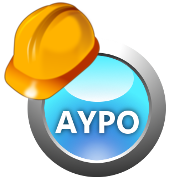Alaska 16 Hour Mechanical Administrator Package
-
16 Hour Course
- 4.9 10 Reviews
- $149.00
This package is specifically designed for Mechanical Administrators who need continuing education in both the UPC & IMC. Because you are able to take UPC and IMC content, and many Mechanical Administrators are also licensed Plumbers, we have included both in this course. This 16 hour package includes:
- 2021 IMC Changes Part 1
- 2021 IMC Changes Part 2
- 2021 UPC Update
These courses are approved with the State of Alaska to meet your continuing education requirements for your Mechanical Administrator License!
At course completion, participants will:
(2021 IMC topics)
- Describe the scope, application, and the legal severability of the International Mechanical Code.
- Describe the preferred method of condensate disposal.
- List the occupancies where mechanical ventilation is required.
- Explain how minimum demand controlled ventilation rates are calculated.
- Describe the exhaust requirements for manicure and pedicures stations.
- Describe the appropriate location for exhaust duct terminations.
- Describe grease duct slope requirements for factory-built grease ducts and square field fabricated systems.
- Explain how a type I grease hood over a smoker oven can be used to vent all combustion products.
- Describe the necessary clearance to combustible construction for listed hoods.
- List the prohibitive applications and Exception for energy recovery ventilators (ERVs).
- Describe approved materials and methods used for installing supply, return, and exhaust air duct systems.
- List design, installation, and maintenance requirements for different types of chimney and vent systems.
- Describe minimum construction and performance standards for fireplaces and solid fuel-burning equipment.
- Explain regulations concerning proper installation of boilers, water heaters, and pressure vessels.
- List design, installation, and operation requirements for refrigeration systems.
- Describe provisions for the installation and repair of piping used in building space conditioning systems.
- Explain regulations for the design and installation of above-ground and underground fuel oil storage and piping systems.
Participants will also learn:
(2021 UPC topics)
- 15 significant new or revised definitions;
- Changes to Chapter (General Regulations), including Minimum Standards; Alternate Materials & Methods, and Dead Legs;
- Changes to Chapter 4 (Fixtures & Fittings), including Hot Water Temperature in Public Lavatories, Gang Showers, Finished Curbs or Thresholds, Limitation of Water Temperature in Bidets, and Low-Pressure Water Dispensers;
- Changes to Chapter 5 (Water Heaters), including Seismic Provisions, Minimum Safe Venting of Appliances, Special Gas Vents, and the New Table 509.8.2 Through-the-Wall Direct-Vent Termination Clearances;
- Changes to Chapter 6 (Water Supply), including Water Supply and Flushing, Backflow Preventers, Cross-Connection Control for Boilers, Materials for Building Supply and Water Distribution Piping and Fittings, Check Valve Required, Leak Detection Devices, Discharge Piping for T&P Relief Valves, and new provisions on Drinking Water Treatment Units;
- Changes to Chapter 7 (Sanitary Drainage), Chapter 8 (Indirect Wastes; Chapters 9 (Vents); Chapter 10 (Traps and Interceptors); & Chapter 11 (Storm Drainage);
- Changes to Chapter 12, including Maximum Operating Pressure in Buildings, 1208.6.5 Plastic Pipe Tubing and Fittings, Gas Pressure Regulators, Overpressure Protection Devices, CSST Systems, Installation of Aboveground Piping, and Sizing of Gas Piping Systems;
- The reorganization of Chapter 13 (Health Care Facilities and Medical Gas and Medical Vacuum Systems), with changes to Design Requirements, Risk Assessment, Documents to the AHJ, Nature of Hazards of Gas and Vacuum Systems, Oxygen Concentrator Supply Units, Shutoff Valves , Flammable Gases, and Positive Pressure Gases
- Changes to Chapters 15 & 16 (Alternate Water Sources for Nonpotable Applications & Nonpotable Rainwater Catchment Systems), including System Design, Minimum Water Quality, Diversion Valves, Design and Installation & the Mandatory “Do Not Drink” Icon;
- Numerous changes to appendices, including the introduction of the new Appendix N on the Impact of Water Temperature on the Potential for Scalding and Legionella Growth
Show Course ID: 1
- Course ID(s): AK18890, AK19344, AK19645
- Approved By: AK Dept. of Labor and Workforce Development - Mechanical Inspection Div.
Instructor Bio

Reggie Hucks is an Inspection Services Administrator for High Point, NC. He has also served as the Code Administrator for Brunswick County and is a Level 3 Mechanical, Building, and Plumbing Inspector. He also is a certified mechanical contractor in North Carolina.

